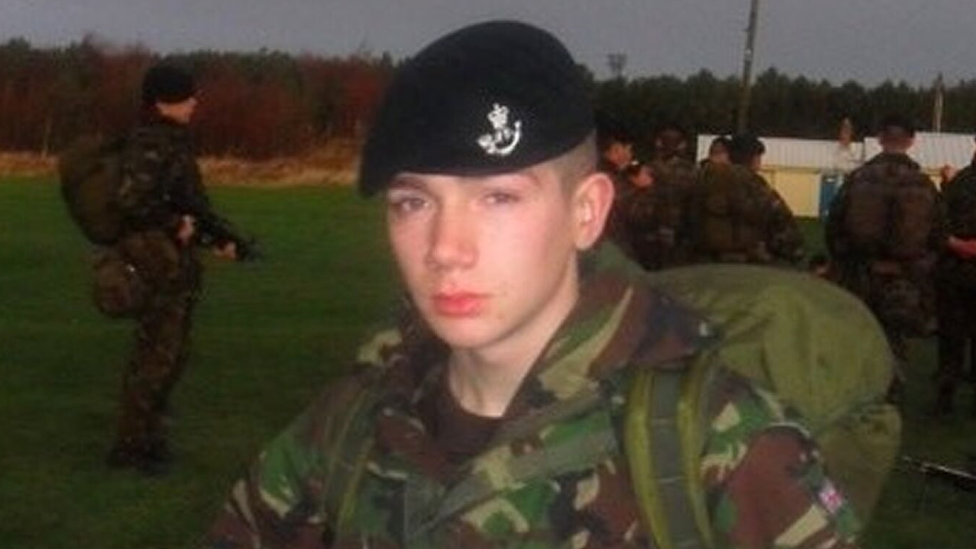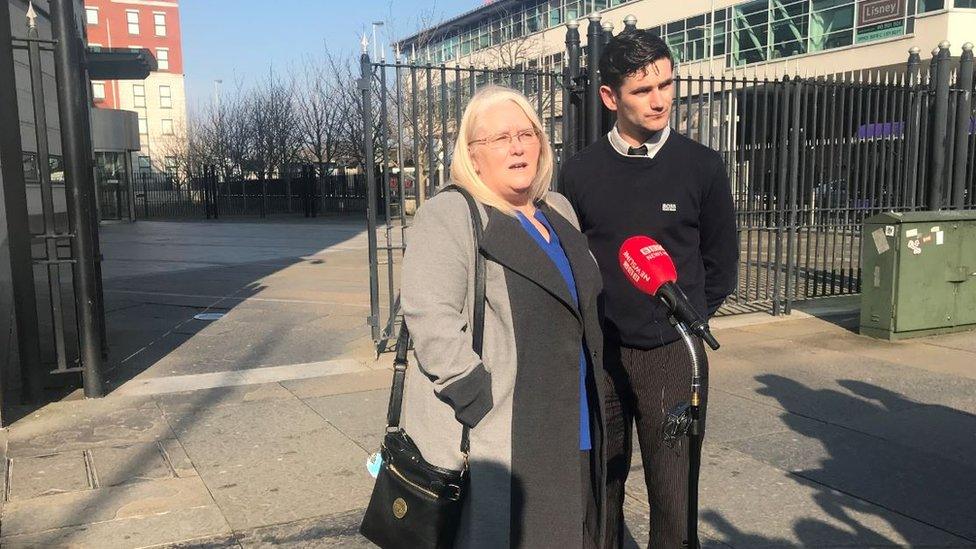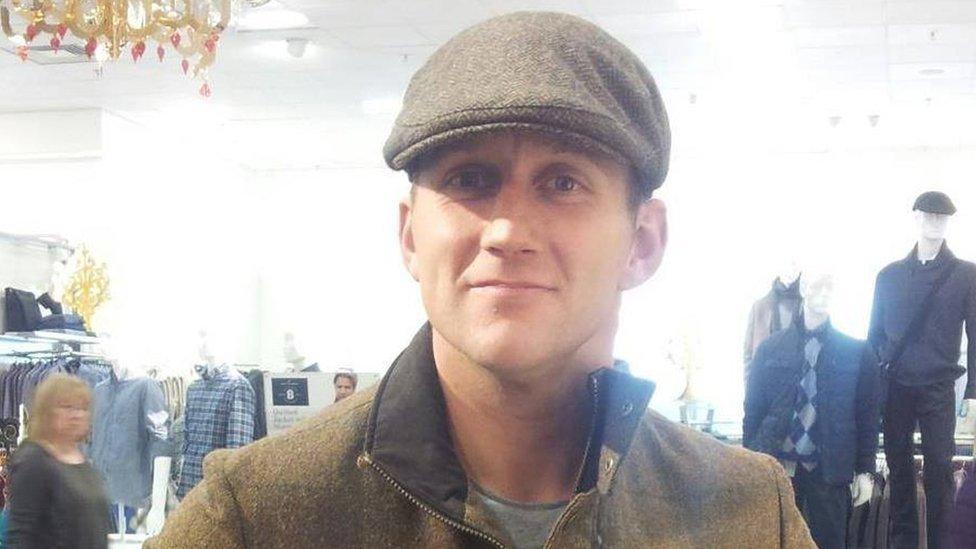Ballykinler inquest: Soldier's death was 'accidental'
- Published

The death of L/Cpl James Ross in December 2012 is also being examined at the inquiry
A coroner has found that a soldier who was found hanged at Ballykinler army base died as a result of an accident.
Lance Corporal James Ross, from Leeds, was discovered in his room at the base in December 2012.
Coroner Joe McCrisken found following an inquest that he is not satisfied to the required standard that Mr Ross meant to take his own life.
"I consider James Ross's death to have been an accident," he said.
The inquest hearing was stopped for a short time when the mother and sister of Lance Corporal Ross became upset following the finding.

The inquest is examining the death of Rifleman Darren Mitchell in 2013
The inquest also examined the death of Rifleman Darren Mitchell, 20, from London who was found hanged in his room at Abercorn Barracks in Ballykinler in February 2013.
Mr McCrisken said he was satisfied on the balance of probability that Rifleman Mitchell did intend to take his own life.
The coroner said the content of WhatsApp messages between Rifleman Mitchell and his girlfriend in the hours before his death and the discovery of a hosepipe in his car, which smelt of fumes, led him to believe he intended to end his life.
Speaking outside the court, Linda Ketcher, the mother of Lance Corporal James Ross said she believed the finding about her son was correct.

Lance Corporal James Ross's family speaking outside after the inquest
"We have got what we expected, we always knew he never meant to do this, so the findings for us are right. It doesn't make it any easier but it is right," she said.
"I think we have learned an awful lot over the last three weeks. I have sat in every day and listened to every piece of evidence and I think there is a lot to be learned, whether or not they take it on board and hopefully the coroner taking these points on will take it a bit further," she said.
Culture at Ballykinler
The inquest also examined the culture in Ballykinler at the time.
Mr McCrisken said that some soldiers who gave evidence to the inquest felt there was a real concern that disclosing mental health problems could affect their careers.
He added that the Army could do more to address this.
"Soldiers felt there was a real concern that this could hold them back," he said.
The coroner also referred to "poor record keeping" by the Army.
Mr McCrisken visited the Ballykinler base during the three-week inquest and in his findings said he could see how isolated it was.
But, he said that he could not be satisfied that its location contributed to the death of either soldier.
The coroner said he found no evidence of bullying or a culture that dissuaded soldiers from coming forward.
The coroner said that Rifleman Mitchell would have experienced the problems of Ballykinler's location "more acutely" as a younger soldier but added that there was a good system in place among the soldiers for getting lifts into larger cities.
Both men were serving with the Second Battalion the Rifles and had previously been in active service in Afghanistan.
- Published18 February 2019

- Published7 February 2019

- Published4 February 2019
